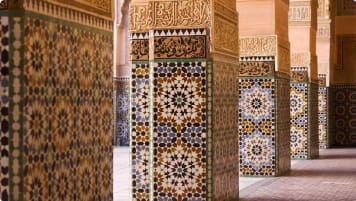The Roman Ruins of Volubilis, Morocco
The Roman Ruins of Volubilis, Morocco Not many people know that there are Roman ruins in the North African kingdom of Morocco. Near the modern-day city of Meknes, about 33 kilometres south of the city,…
25 Jan 24 · 7 mins read
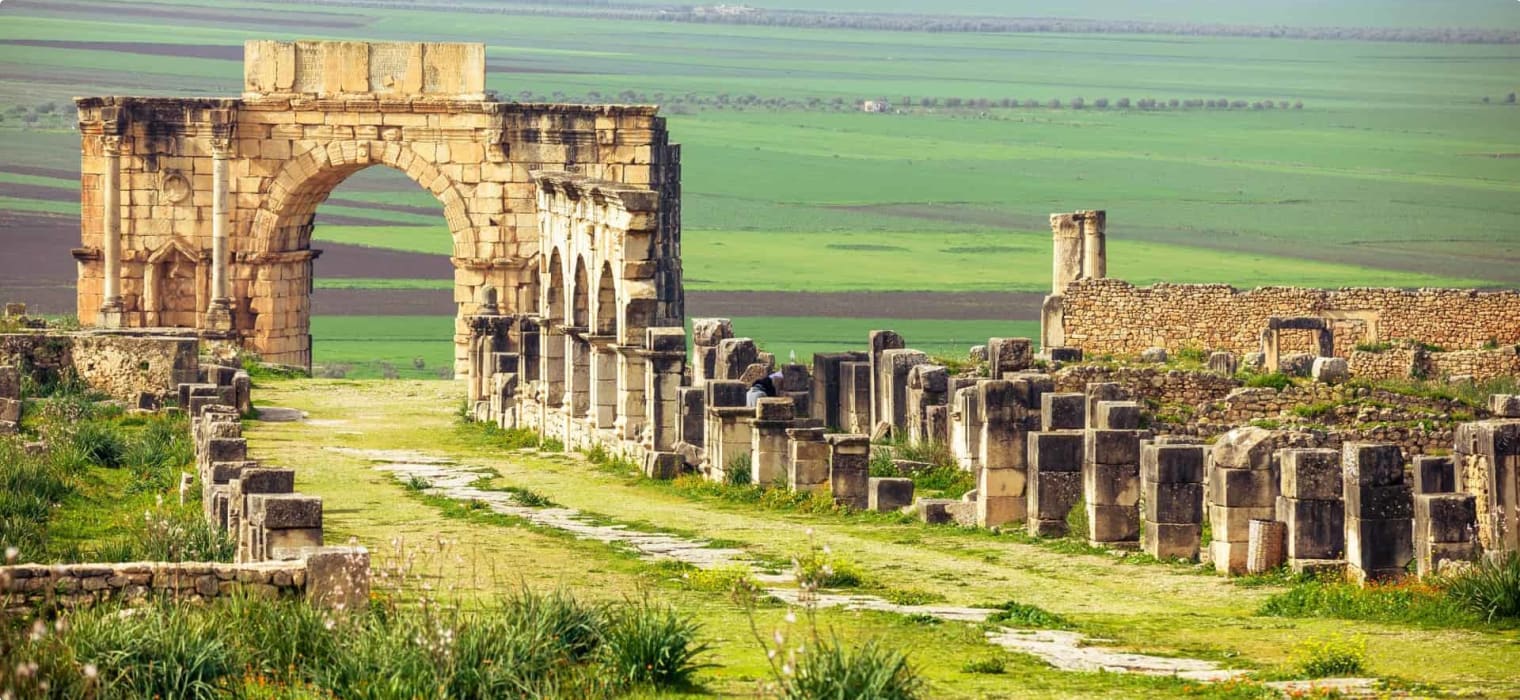
The Roman Ruins of Volubilis, Morocco
Not many people know that there are Roman ruins in the North African kingdom of Morocco. Near the modern-day city of Meknes, about 33 kilometres south of the city, lay the ancient Roman city of Volubilis. Technically located out of the Roman provinces, ancient Volubilis existed in a liminal space, both Roman and non-Roman, part of the empire but equally influenced by the lands beyond the border. Located in the foothills of the Rif mountains of southeastern Mauretania, Volubilis was much nearer to the Berber peoples who lived beyond the Atlas Mountains than it was to the Latins of the Italian peninsula. As such, its partly excavated ruins reveal several distinct influences that are still enthralling visitors to this day.
Odyssey Traveller conducts a tour of Volubilis as part of our 20-day Morocco Tour for Senior Travellers. We stop at the Roman ruins on route as we travel from one city to the next, watching as mountains strike up before red dunes and deserts give way to lush oases. Whether a couple or a colo adventuer, you can join this escorted small group tour, designed for senior travellers, and immerse yourself in the captivating allure of Casablanca, Fez, Meknes, Rabat, Marrakech and beyond.
This article is written as background reading for your Morocco tour, part of our series on lost ancient cities, drawing on information from Philip Matyszak’s Lost Cities of the Ancient World. Read on for more information!

Beginnings
There had been a settlement of some kind at the site of Volubilis for thousands of years (relics have been found dating to the Neolithic era). Since the beginning of recorded history, it has been inhabited by the ancient Berbers, a tribal group who rose to power in the Atlas Mountains and spread across North Africa.
Volubilis formally became a city in the third century BC as part of the Berber kingdom of Mauretania (Maghreb). Despite this, the next major influences on the cultural life of the ancient city were not Roman but Greek.
The philhellenic Juba II, king of Mauretania (d. c. AD 23), was about as far from a ‘barbarian’ king as one could get. He was a friend of Julius Caesar and his heir Octavian, spoke Latin and Greek fluently and married Cleopatra Selene, the daughter of Cleopatra of Egypt and Mark Antony. He encouraged the arts and sciences in his kingdom, and was something of a scholar himself, publishing a treatise on Roman archaeology. Under Juba’s rule Volubilis flourished to the extent that some historians believe it may have served as a second capital for his kingdom. Rich mosaics from this era have been found in the mansions of Volubilis, generally depicting themes from Greek mythology.
Roman Volubilis
After Juba’s death, Mauretania was formally annexed by Rome under Emperor Claudius, and divided into two provinces, Mauretania Tingitana and Mauretania Caesariensis. Volubilis became the capital of Mauretania Tingitana.
It is doubtful that the change of management greatly affected the people of Volubilis. The protection of the legions was surely welcome though, as the Berber tribes strongly resisted attempts to push Rome’s borders any further south (for all its wealth and sophistication, Volubilis was always a frontier town.
Epigraphic evidence shows that the population of the city largely consisted of Latinized Berbers, remnants of the Carthaginian population, and a small Jewish element. Nevertheless, the city was plugged directly into the mainstream Roman economic system. Built on fertile lands on the slopes beneath the Zerhoun mountain, city was ideal for growing wheat and olives, and the city of Rome had an insatiable appetite for both. Evidence for the olive industry is everywhere in Volubilis, and the remains of olive presses are the single most common industrial artefact found in the ruins.
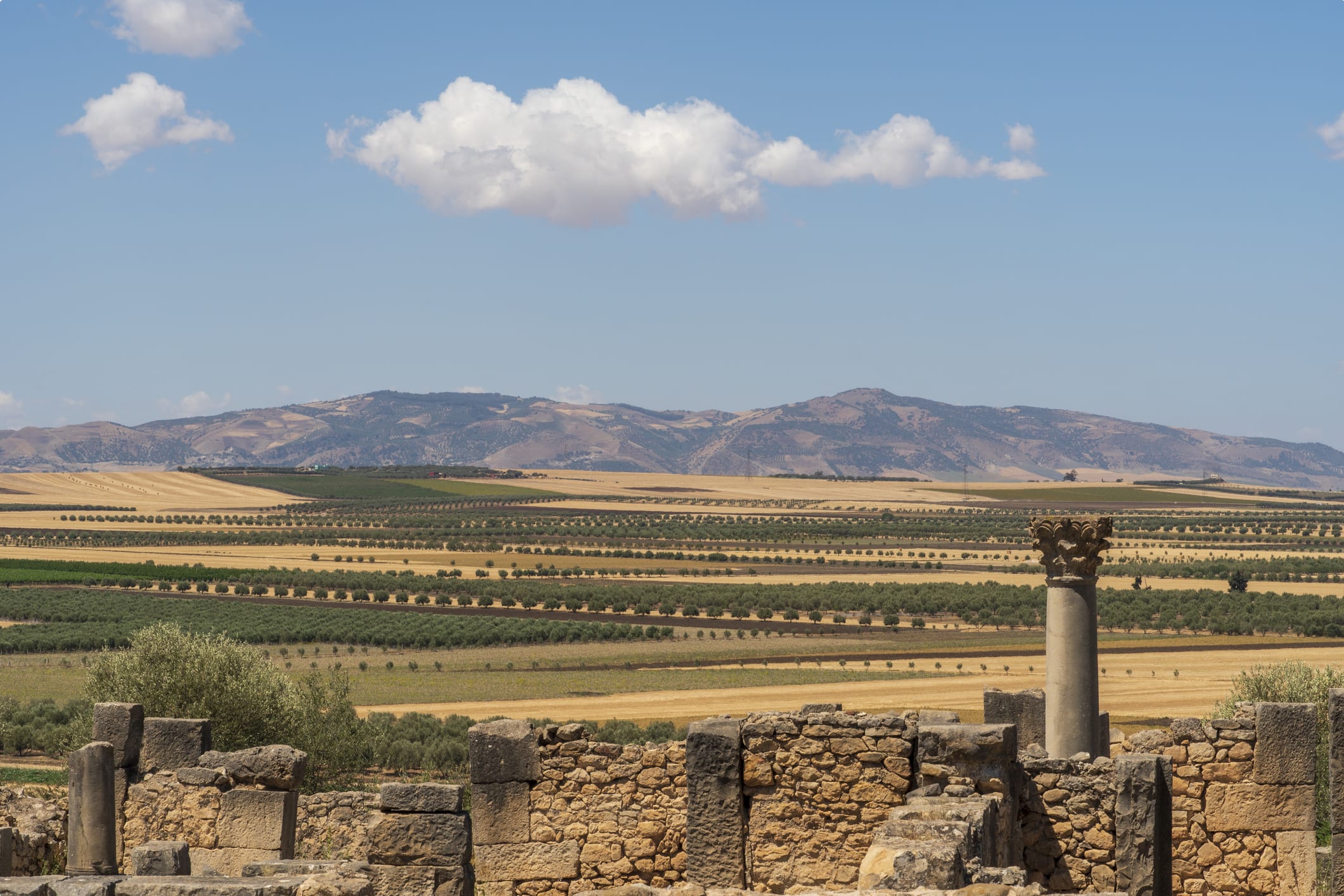
Another of the flourishing industries in the area was capturing and exporting exotic animals for the Roman arena. While these activities greatly benefited the merchants of Volubilis, they also constituted something of an ecological disaster, contributing directly to the extinction of the Atlas bear and the Barbary lion. The local forests were also destroyed to make way for wheat and olive plantations – a process that contributed to, and was exacerbated by, the growing desertification of the region.
Volubilis at its Peak
Despite the ecological destruction, Volubilis quickly grew in prosperity due to its industries, thriving for the first two centuries of the imperial era. During this time, the imperial city’s size grew substantially, spreading over an area of some 43 hectares (106 acres). Most of the city’s older buildings were demolished so that newer and grander ones could be built over the remains. These included a basilica, thermal baths, and a triumphal arch, mined from local limestone.
A main street, the Decumanus, had broad sidewalks lined with shops (some two hundred have been identified so far) and the houses of the wealthy. At one end of the street was the imposing Arch of Caracalla (later partly rebuilt during the French colonial occupation) and at the other the so-called Tingis Gate. Water was carried into town by an aqueduct, and from there it flowed through the city in an underground channel beneath a street running parallel to the Decumanus.
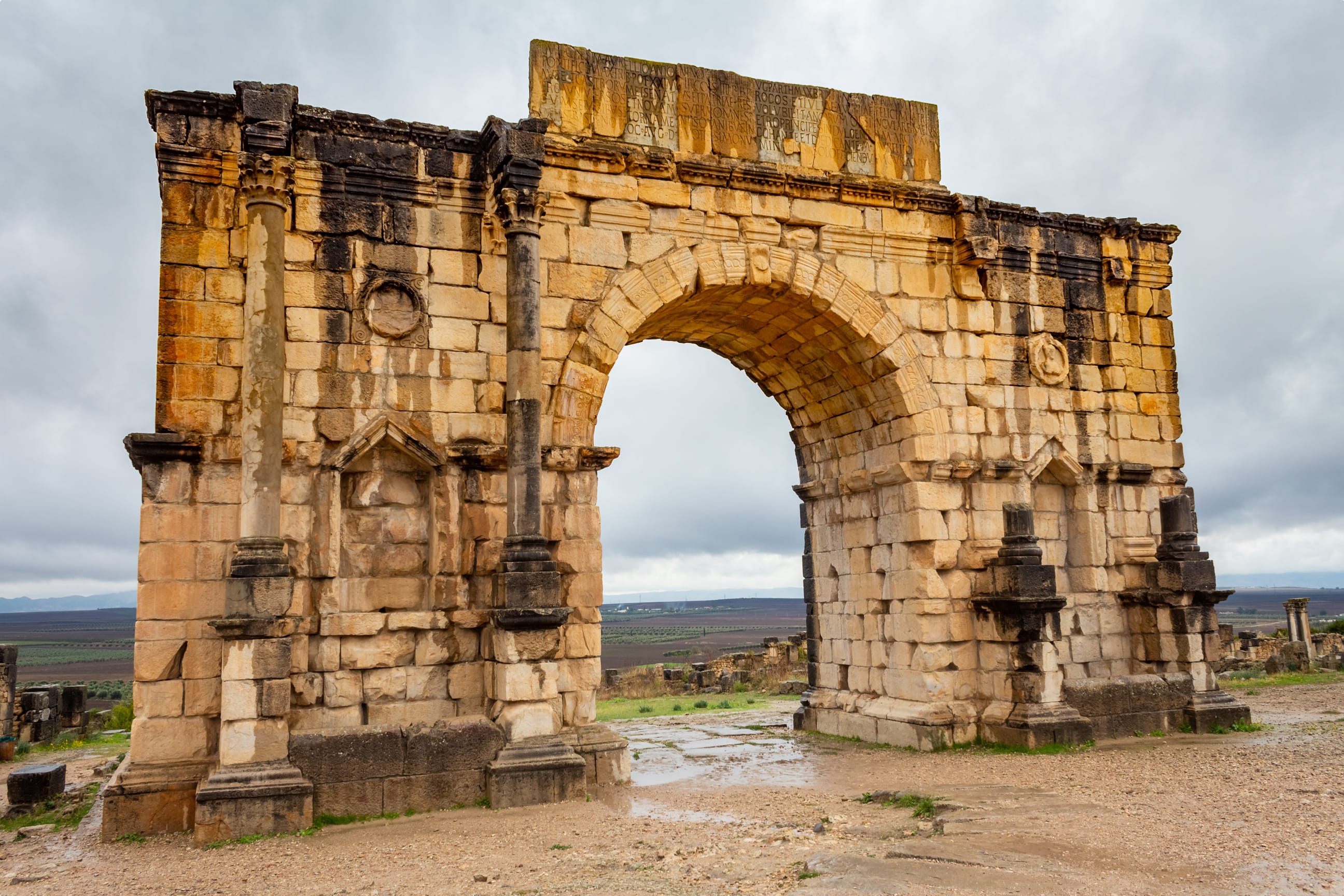
Smaller mud-brick housing blocks accommodated the city’s poorer citizens. Though these were often just two-room dwellings, the remains of dozens of bakeries show that the population tended to spend much of the day outdoors, including at the forum and marketplace, which occupied more than 1,000 square metres (10,750 square feet.
At its peak in the late 2nd century, Volubulis was home to some 20,000 inhabitants.
Decline
Even at its most prosperous, Volubilis was under threat from Berber tribes continually harassing their foreign rulers from their base in the Atlas Mountains. Around 168 CE the administration of the emperor Marcus Aurelius ordered the construction of a 2.6-kilometre (1½-mile) circuit of defensive walls to shore up the city’s somewhat ad hoc defences.
These defences were all the more necessary as the Roman empire was plunged into crisis during the third century. During this empire-wide period of political and economic instability, Volubilis slipped out of imperial control, falling to local tribes in 285 CE. Even when a series of capable emperors later re-stabilized Roman society, Volubilis was now deemed too remote to be retaken, lying beyond the frontiers of Rome’s shrunken borders in Africa.
Even so, the city seems to have remained an urban centre. From the archaeological evidence, it appears that the city’s dual character allowed it to keep functioning as a Moorish city even when the Roman element lost control. The city also seems to have had a largely Christian population in this later era, which probably helped when Volubilis came briefly back under the control of the Eastern Roman empire in the sixth and seventh centuries.
By this time, Volubilis was much reduced. The collapsed economy of Italy no longer had much demand for the city’s products, and an earthquake in the fifth century had created widespread devastation.
After 788 the city became Islamic and briefly enjoyed a renaissance as the capital of the Muslim dynasty of the Idrisids, established by the Arab ruler Idris I. The ruler’s original mausoleum was in this city (later moved to Moulay Idriss, a holy city near Meknes).
The ecological damage of previous centuries was catching up with the city, however, and by the eleventh century it was largely abandoned. In the seventeenth century the ruined city was pillaged once more – this time by the Sultan of Meknes, who wanted marble columns and dressed stone to adorn his own city. More damage was wrought by a further earthquake in the eighteenth century.
Modern Volubis
Despite the centuries since its abandonment, Volubilis remains one of the best-preserved Roman cities in Africa. The dry climate has helped to preserve a treasure trove of mosaics, statuary, and inscriptions. For example, archaeologists have discovered a perfectly intact bust of the younger Cato, still sitting upon its original pedestal in an abandoned room.
Several houses with mosaics and large mosaic floors have also been excavated. The grandest of which is the House of Orpheus, depicting Orpheus playing a lute. Some of the inhabitants who fled the city in AD 285 when Roman rule collapsed never returned, leaving hoards of money and fine bronze statues buried under their houses for delighted archaeologists to unearth some 1,700 years later.
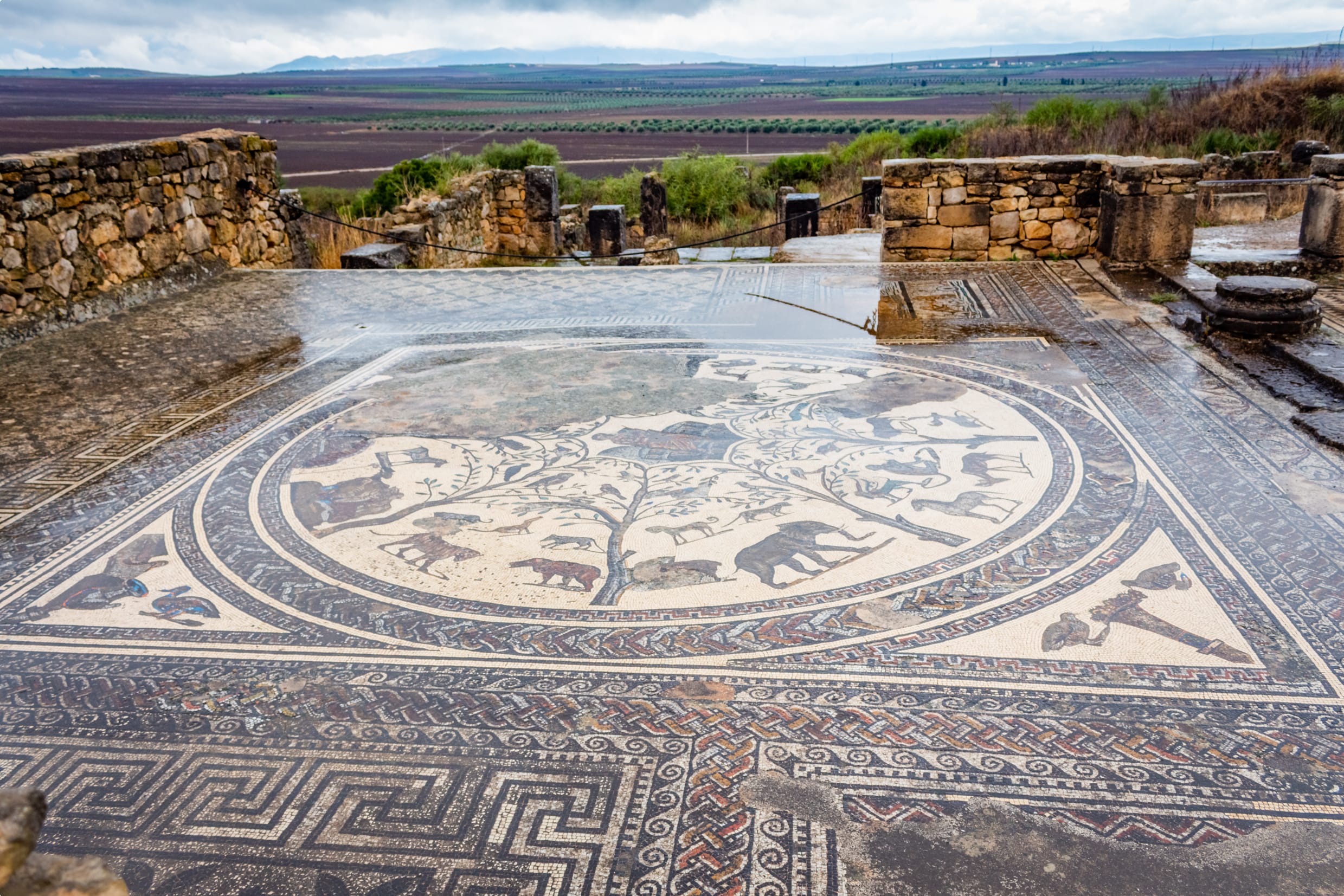
Volubilis now has a small population of researchers (since 2000, excavations have been carried out by University College London and the Moroccan Institut National des Sciences de l’Archéologie et du Patrimoine). But still, of the walled city’s 40-hectare expanse, almost half still remains to be excavated, promising that more beautiful archaeological and monumental wonders will be unearthed in the years to come. As with many a lost and rediscovered city, Volubilis is now a UNESCO World Heritage Site.
Tour of Volubilis
Odyssey Traveller visits Volubilis as part of our 20-day Morocco Tour for Senior Travellers. On this tour, you will visit the amazing archaeological site with a local guide, after travelling through the Atlas Mountains and the desert on route to Fez. In addition, you’ll stop at other cities in Morocco, such as Meknes with its Moroccan souks (traditional Arab markets), and fascinating Rabat, the capital city of Morocco.
This tour in Morocco offers something for everybody, from adventurous nature walks and bustling marketplaces to the pristine silence of the Sahara, enjoyed over traditional mint tea. Keep an open mind and heart, and you will be rewarded by unique travel experiences that will take your breath away.
Odyssey Traveller has been serving global travellers since 1983 with educational tours of the history, culture, and architecture of our destinations designed for mature and senior travellers. We specialise in offering small group tours partnering with a local tour guide at each destination to provide a relaxed and comfortable pace and atmosphere that sets us apart from larger tour groups. Tours consist of small groups of between 6 and 12 people and are cost inclusive of all entrances, tipping and majority of meals. For more information, click here, and head to this page to make a booking.
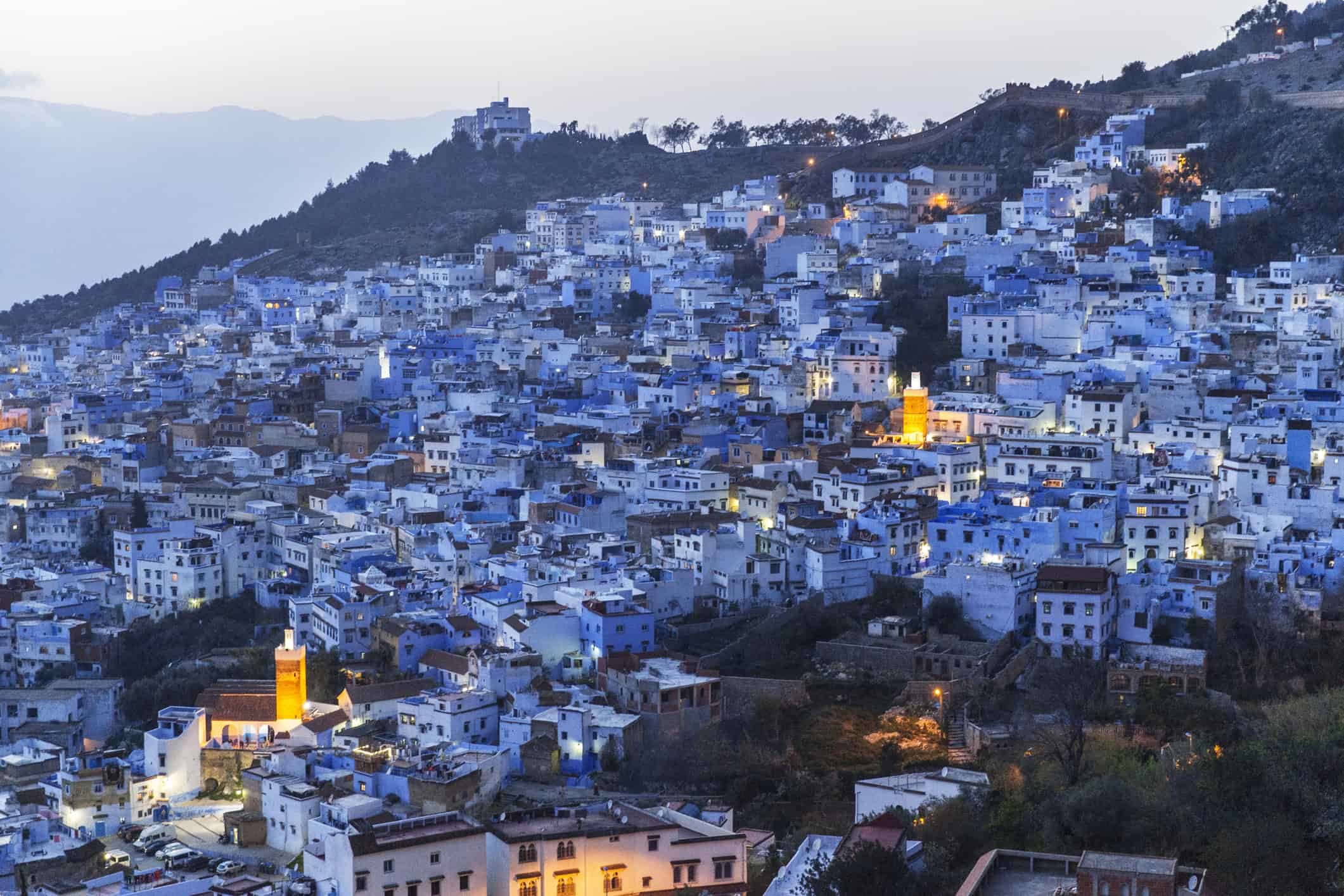
Articles about Morocco published by Odyssey Traveller:
- Discover Morocco: Continental Crossroads
- The Literary Allure of Tangier, a City of Storytellers
- Caves of Hercules, Morocco
- The Fascinating History of the World’s Oldest Library
For all the articles Odyssey Traveller has published for mature aged and senior travellers, click through on this link.
External articles to assist you on your visit to Morocco:
- Archaeological Site of Volubilis
- North Africa history
- A Brief History Of The Ancient Roman City Volubilis, Morocco
- Volubilis in Morocco
- A Day Trip to Volubilis and Moulay Idriss from Fes
- Secret corners of Morocco to discover in 2020
- The world’s oldest centre of learning
- The good, bad and ugly sides to Marrakech, Morocco for tourists
- Will Travel For Zen: A Yoga Retreat In Mystical Morocco
- More than tagine: An expert guide to the best dishes to eat in Marrakech – and where to find them
Originally published January 29, 2020.
Updated on January 25, 2024.
Related Tours
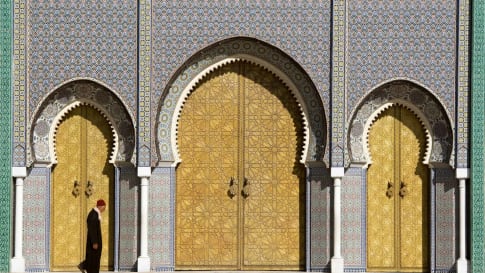
20 days
Apr, Oct, MarMorocco tour for senior travellers
Visiting Morocco
Embark on an unforgettable journey through Morocco: A Gateway to a world of vibrant colors, cultural diversity, and endless wonder. Join our escorted small group tour designed for senior travellers, whether you're a couple or a solo adventurer, and immerse yourself in the captivating allure of Casablanca, Fez, Meknes, Rabat, Marrakech and beyond. Experience the richness of Moroccan traditions and heritage as we explore this enchanting destination.
From A$11,915 AUD
View Tour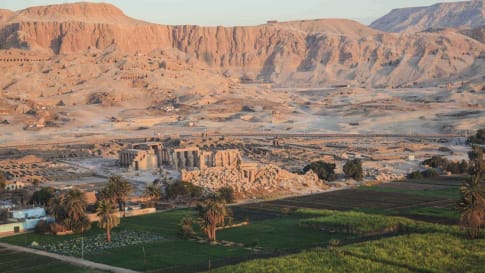
18 days
Nov, JanEgypt tour: escorted small group history & cultural tour of Egypt
Visiting Egypt
Our small group program for senior and mature couples and solo travelers takes us to contemporary feats such as the Aswan Dam and also to current crucibles of the Egyptian experience such as Tahrir Square. Proof, were it needed, that Egypt’s role as the pivot of civilisation is far from ended. There is the opportunity to visit our Morocco, Jordan or Iran tours before embarking on this tour of Egypt.
From A$12,950 AUD
View Tour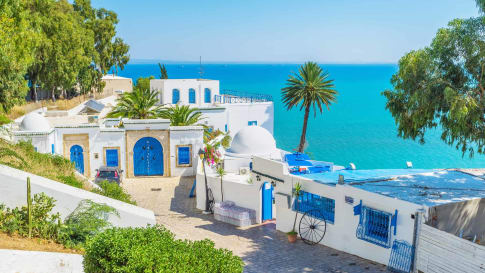
14 days
Apr, Sep, MarTour of Tunisia
Visiting Tunisia
Join Odyssey Traveller on this small group tour of Tunisia in North Africa for couples and solo travellers, where Carthaginian ruins sit side by side with Roman monuments, grand Islamic mosques, Arabic souks and medina, and honeycomb-like Berber cave dwellings and hilltop villages.
From A$10,995 AUD
View Tour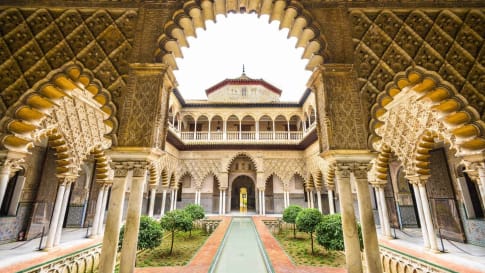
17 days
Mar, OctMoors in Spain
Visiting Spain
A small group tour of Spain exploring Spain's Moorish past. Your tour leader discovers and traces of the art, architecture, and culture and religious reign and of the Moors in Spain visiting their key cities of Madrid, Toledo, Seville and the cities of Andalusia.
From A$15,100 AUD
View Tour
